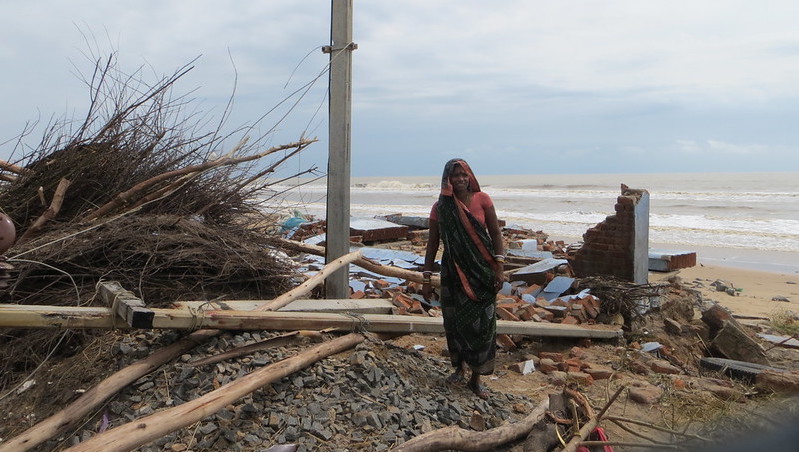Climate Home News is seeking stories about how people on the front lines of climate change are tackling the worsening threats to their livelihoods.
In partnership with the Climate Justice Resilience Fund (CJRF), we are supporting original reporting that focuses on communities, mainly in developing nations, who are suffering most from climate change even though they have contributed little to the problem of rising greenhouse gas emissions.
Articles will put a spotlight on CJRF’s goal of supporting “communities first hit, first to respond, and first to adapt to climate change”. We will highlight women, youth and indigenous peoples on the front lines of climate change who are creating and sharing their own solutions for resilience.
The ideal story for us will capture the attention of our international audience with a combination of on-the-ground reporting from affected communities, scientific evidence, innovative and rights-based solutions, and political tension or controversy.
The grants will cover competitive rates and reasonable travel expenses, to be negotiated in advance.
We plan to publish eight articles under the project, lasting until 30 November 2020. At least half of the stories will focus on CJRF’s priority areas – the Bay of Bengal, East Africa and the Arctic – where climate change is already affecting landscapes and livelihoods.
In the Bay of Bengal, communities in Bangladesh and the Indian states of Orissa and West Bengal are at risk from heat waves, erratic rainfall, and storms surges. Rising seas may force relocation, but how are communities working to delay any moves, or to ensure they move on their own terms?
In the drylands of Tanzania and Kenya in East Africa, more variable rainfall linked to climate change is disrupting food production. How are communities innovating to safeguard their crops, livestock and livelihoods?
In the Arctic, a thaw is threatening the hunting livelihoods of indigenous peoples in CJRF´s focus areas of Alaska, Canada and Greenland. Can they adapt?
If you are a journalist with at least three years’ experience, please send us your pitches. Local reporters will be given preference, although we would also consider pitches from travelling reporters for stories in areas where local reporting is harder to source.
Your pitch should explain the top line of the story and essential context in no more than 150 words. If we like the idea, we will ask for more detail. Briefly explain what sources you would interview and any travel required. Our focus is on written articles but we are also open to multimedia projects.
When pitching for the first time, tell us a bit about your journalism experience and background. Include links to one or two recent stories you are proud of. Editors will work closely with you to give feedback and advice.
For transparency to our readers, each piece would note that it was produced with support from CJRF along with a link to our editorial guidelines that outline how we interact with grant makers while ensuring independence.
You must have fluent spoken and written English. It helps if you have worked with international media before and have some awareness of climate change themes.
Please send your pitches to acting editor Megan Darby [email protected]. We will review the first pitches in mid-March and subsequent ideas in coming months and will publish until November.
This article has been amended to update the contact details.
